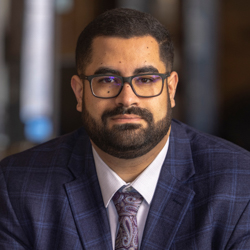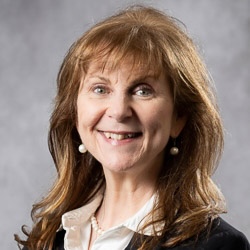Slate of Candidates for the CMA Board of Directors Election
The CMA Board of Directors is the governing body of the association. The Board represents the broad diversity of our membership in terms of job responsibilities, communications formats, geography and roles within their organizations. We encourage you to get involved and vote for those who you feel will contribute to the organization’s continued success.
A special election is required to fill the Diocesan Director of Communications vacancy on the CMA Board of Directors. The Nominating Committee has recommended a slate of candidates, and the executive director has confirmed their willingness to serve. Directors serve a three-year term.
Voting officially opens on Oct. 1, 2025, and closes at the end of the day on Oct. 15, 2025. Organizational Media Members, Organizational Communications Members and Freelance Members are eligible to vote. Please be sure you are logged in to your CMA account. If you have questions, please e-mail membership@catholicmediaassociation.org. We encourage you to be an active member and participate in the election.
Learn more about the Board nomination process by visiting our frequently asked questions page.
The election closed Oct. 15. Thank you for voting.

Montie Chavez, MBA, is the Director of Communications for the Archdiocese of Las Vegas. With a bachelor’s in public relations from Our Lady of the Lake University and an MBA from the University of Mary, he brings a blend of strategic vision and practical expertise to his role. Since joining the Archdiocese in September 2022, he has enhanced digital engagement and maintained consistent communication across multiple platforms and mediums, including overseeing all communications when Las Vegas was elevated to Archdiocese status in 2023.
Previously, Chavez managed all aspects of communications for St. Norbert Abbey in Green Bay, where he was known for his adept handling of both regular and crisis communications, covering everything from digital, print, social media, and web design.
Chavez also has a unique background from his seven years of formation with the Capuchin Franciscan Friars, enriching his communication skills with theological insight and ministerial practice. Using this inside and unique perspective, he can easily navigate this role combining communications and the Catholic Church.
Describe the importance of Catholic media:
Catholic media is crucial because it serves as a means of evangelization, responding to Christ's command to "go and make disciples of all nations" using modern technologies to spread and communicate the Gospel effectively. As society becomes increasingly saturated with secular marketing trends, the Church has a responsibility to use all forms of communication and media to maintain relevance and connection with current Catholics, potential Catholics, and those who look to the Church as a source of information.
Additionally, the Church's focus on high-quality media production ensures that its messages are appealing, informative, and educational helping to deepen the faith of individuals that is both culturally and contextually relevant. The strategic use of media supports the Church's broader mission of ongoing evangelization and synodality.

Colleen McGinty-Rabine is the Director of Communication for the Diocese of Gary in Northwest Indiana. She holds a Bachelor of Science degree, majoring in Communications and Public Relations from Illinois State University. She is married to Bernard Joseph, with whom she has three adult children and is "Nana" to three baby grandchildren.
McGinty-Rabine has more than 20 years of experience serving non-profit organizations, offering leadership in strategic communications, storytelling, editing, crisis communication, training, and development.
She has contributed to the CMA in varied ways since joining as a member in 2019, including work on the membership committee, the annual conference, the annual book awards, and as a book award judge.
As a passionate advocate for communication professionals, McGinty-Rabine is committed to supporting and advancing the good work of the Catholic Media Association.
Describe the importance of Catholic media:
As fewer people actively practice their faith, Catholic media has become even more essential in informing, educating, inspiring, and engaging the faithful through accurate and engaging communication.
It strengthens communities by sharing stories, events, and discussions grounded in the Catholic faith. Media professionals collaborate with ministries, parishes, schools, and organizations to deliver meaningful messages to local communities.
To effectively share Church teachings and values, Catholic media must address complex social issues through a faith-based lens, supporting both newcomers and lifelong Catholics.
In recent years, media professionals have accepted the challenge to pivot and embrace new technologies to reach diverse audiences and extend their mission to serve beyond traditional church communities.
With the expansion of social media and streaming platforms, audiences have overwhelming content options. Catholic media must be intentional and strategic to push messages through this crowded, competitive landscape.
The Church relies on Catholic media to deliver relevant, mission-aligned messaging. In response, professionals are passionately committed to understanding audience interests, adapting to how diverse audiences consume content, and creating engaging content that connects with both the faithful and seekers.
